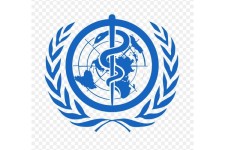World Health Organization (WHO)

The World Health Organization (WHO) is a specialized agency of the United Nations involved in international public health.
The WHO was established on 7 April 1948.
The WHO's mandate seeks and includes: working worldwide to promote health, keeping the world safe, and serve the vulnerable. It advocates that a billion more people should have: universal health care coverage, engagement with the monitoring of public health risks, coordinating responses to health emergencies, and promoting health and well-being. It provides technical assistance to countries, sets international health standards, and collects data on global health issues.
The Thirteenth General Programme of Work (GPW 13) defines WHO’s strategy for the five-year period, 2019-2023. It focuses on triple billion targets to achieve measurable impacts on people’s health at the country level.
The triple billion targets are to ensure by 2023:
- One billion more people are benefiting from universal health coverage
- One billion more people are better protected from health emergencies
- One billion more people are enjoying better health and well-being
Headquartered in Geneva, Switzerland, it has six regional offices and 150 field offices worldwide.
The World Health Assembly (WHA) is the forum through which the World Health Organization (WHO) is governed by its 194 member states. It is the world's highest health policy setting body and is composed of health ministers from member states.
The members of the WHA generally meet every year in May in Geneva at the Palace of Nations, the location of WHO Headquarters. The main tasks of the WHA are to decide major policy questions, as well as to approve the WHO work programme and budget and elect its Director-General (every fifth year) and annually to elect ten members to renew part of its executive board.[1] Its main functions are to determine the policies of the Organization, supervise financial policies, and review and approve the proposed programme budget.
- United Nations
- Public health, global health
- Policy brief or recommendation of good practices
- Policy making and regulation
- Mainly international

